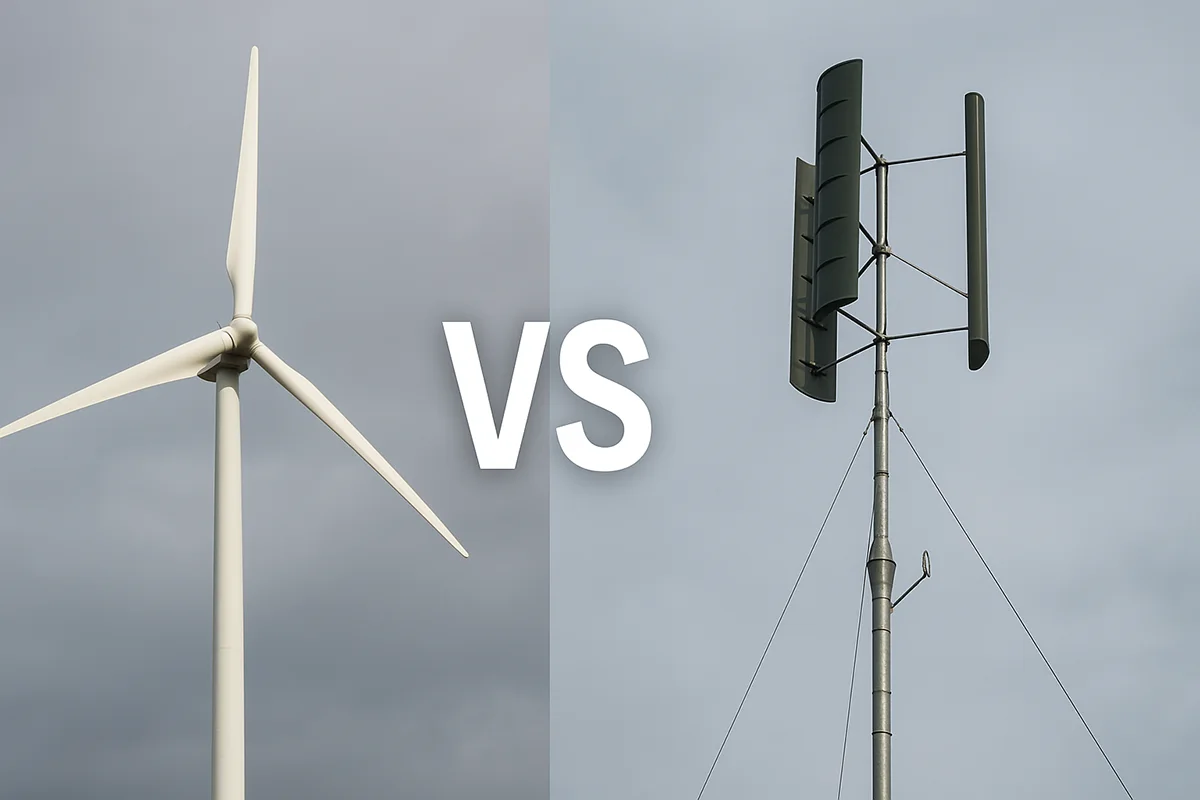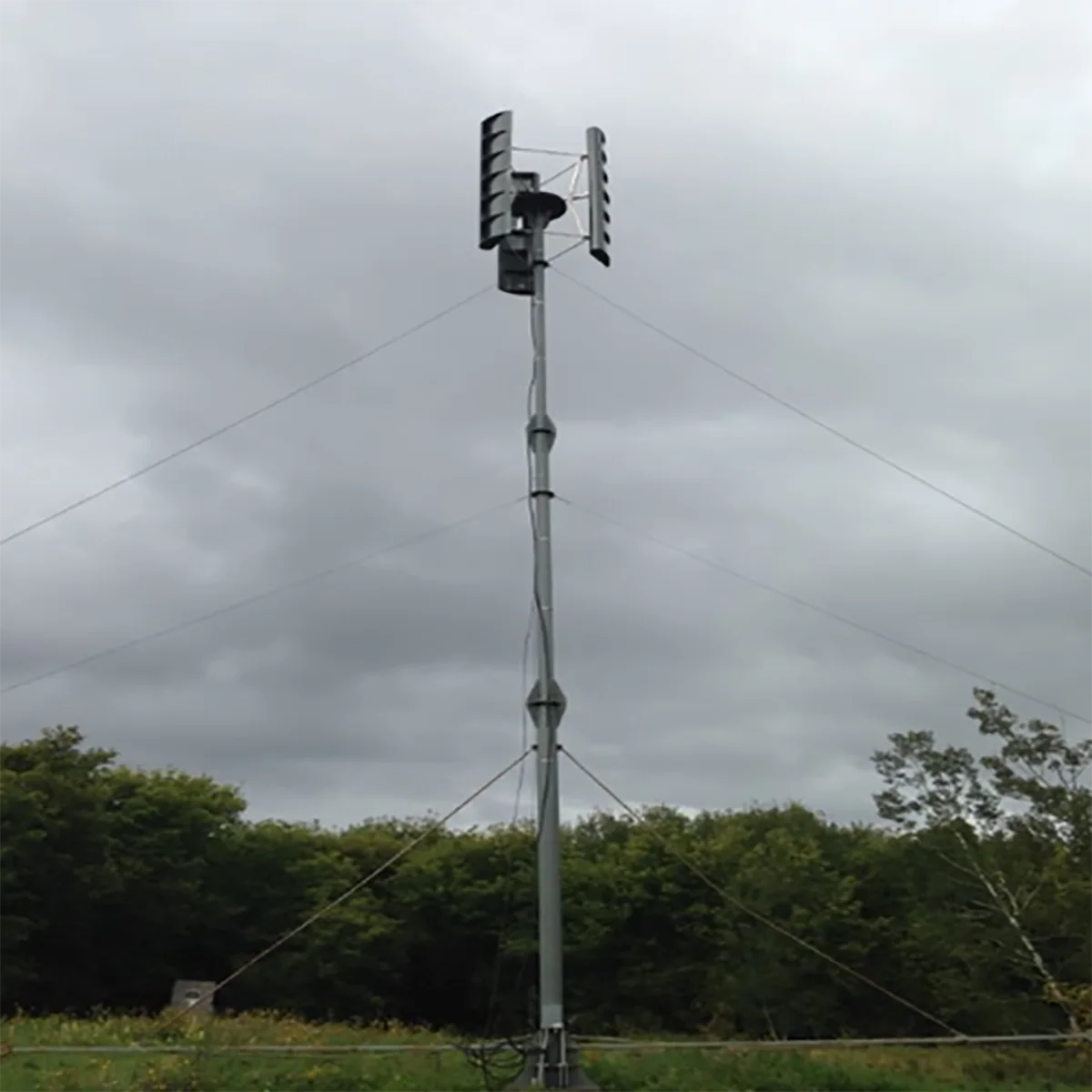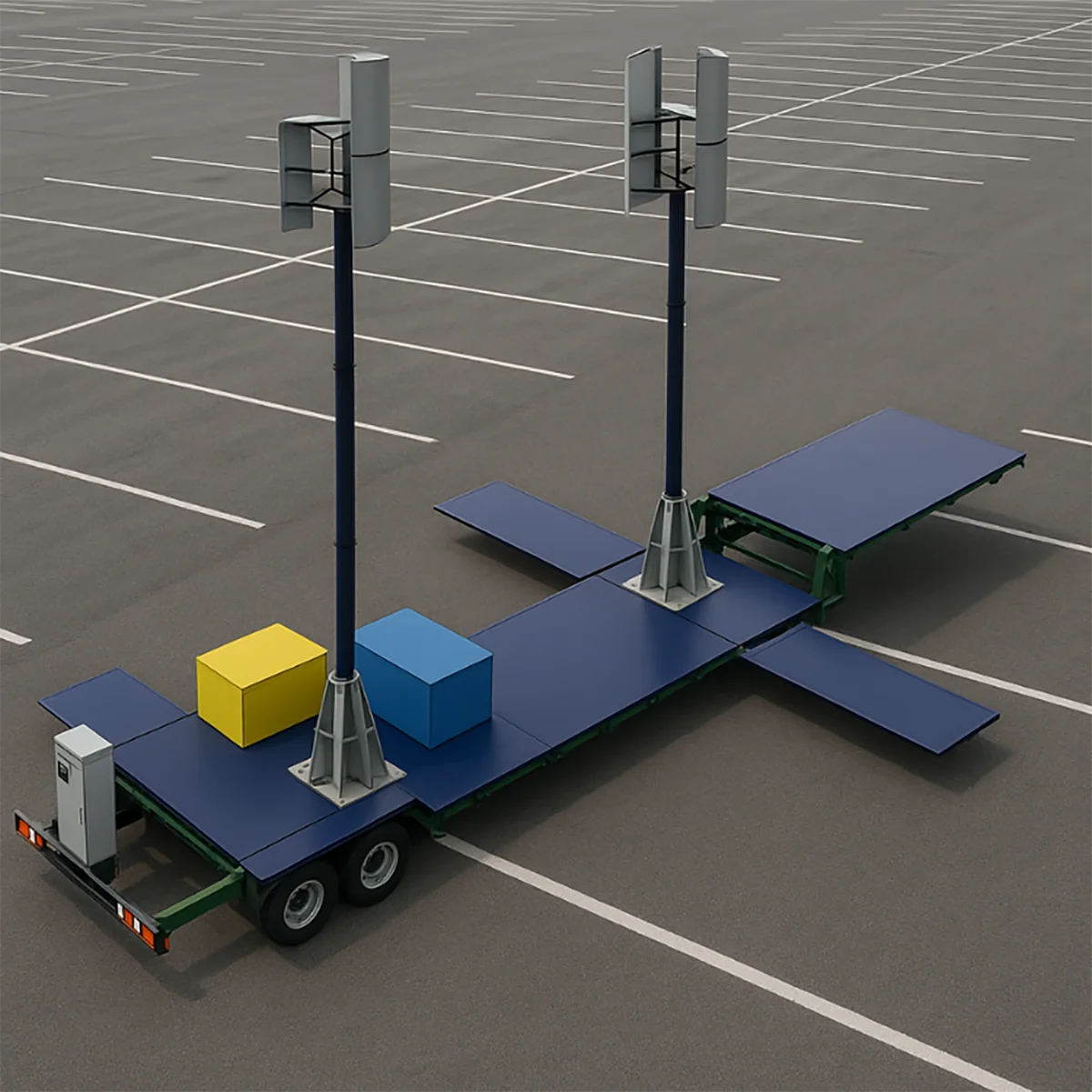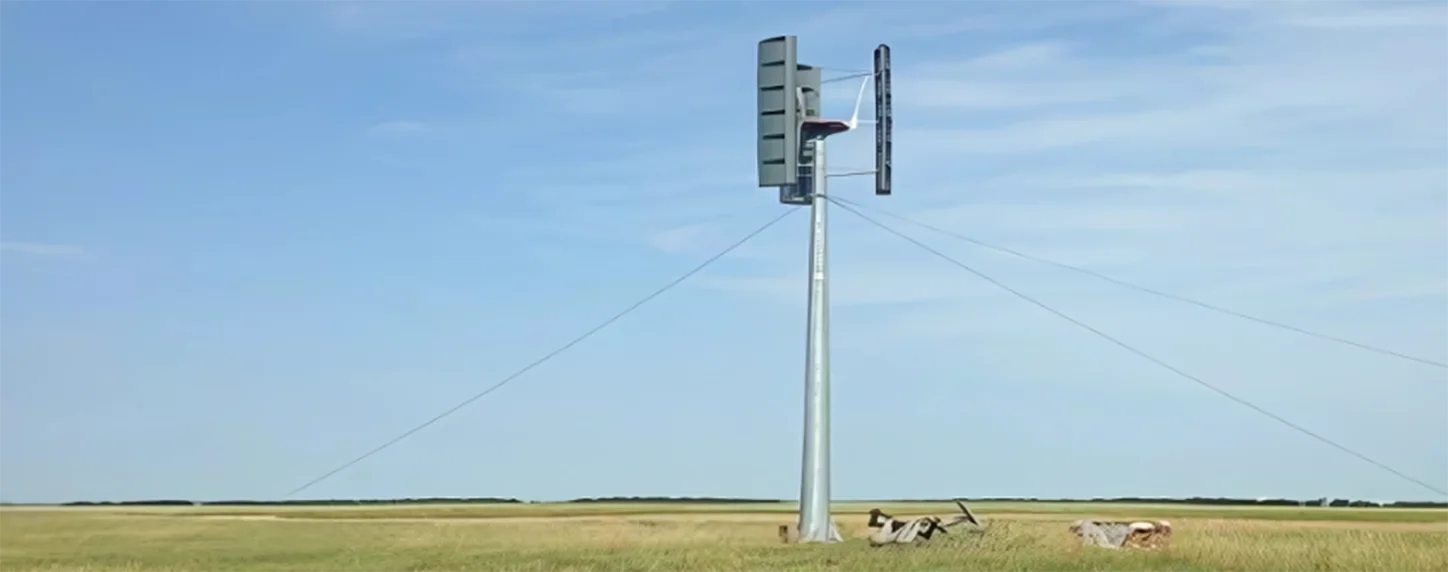Reliable off-grid power remains elusive despite the widespread adoption of renewable energy. Traditional horizontal-axis wind turbines (HAWTs) dominate renewable portfolios, but industrial and commercial sectors often face operational headaches and prohibitive maintenance costs. Mundo's hybrid vertical-axis wind turbines (VAWTs) emerge as a scientifically validated, practical solution that directly addresses traditional turbine shortcomings.

The Fundamental Problem: Traditional Turbine Limitations
HAWTs have historically defined industrial wind solutions, but their very design presents significant operational hurdles. For optimal energy capture, horizontal-axis systems require precise wind alignment through yaw mechanisms—complex machinery prone to frequent breakdowns. According to the National Renewable Energy Laboratory (NREL), yaw system failures contribute to considerable downtime and unexpected repair costs.
Additionally, generators mounted high atop tall towers complicate routine maintenance. Crane-assisted servicing typically involves costly multi-day operations, which significantly impact operational budgets and site uptime.
Common Challenges with HAWTs:
- Complex yaw alignment mechanisms are prone to frequent maintenance.
- Elevated generator positioning creates service inefficiencies and costly downtime.
- Sensitivity to turbulent or variable wind conditions significantly decreases performance.
Industrial sites, particularly remote cell sites or telecom towers, require a simpler and more reliable alternative.
How Mundo's Vertical Axis Wind Turbine Overcomes These Issues
Mundo's vertical-axis wind turbines leverage a hybrid design that effectively addresses conventional VAWT challenges—particularly the difficulty in self-starting. By integrating drag-based Savonius and lift-based Darrieus blades, Mundo's turbines reliably start rotation at a remarkably low wind speed of 2 m/s (4.5 mph), beginning power generation at only 3 m/s (6.7 mph), with a 6.25 kW vertical-axis wind turbine.
This critical breakthrough resolves a longstanding technical issue, as verified by numerous academic studies, including those conducted by Red River College's Technology Access Centre for Aerospace & Manufacturing (TACAM). Their detailed computational fluid dynamics (CFD) analysis optimized Mundo's blade design, ensuring consistent performance across a wide range of wind conditions.
Key Technical Advantages:
- Reliable self-starting at low wind speeds (2 m/s).
- Hybrid Savonius-Darrieus design yields consistent power output.
- Eliminates yaw mechanisms, significantly reducing maintenance complexity.
Operational Reliability and Minimal Maintenance
Operational efficiency extends beyond blade performance. Mundo's hybrid VAWT design places generators and critical components at ground level, simplifying access and reducing service durations from day to hours. Routine maintenance occurs only once every five years, requiring only bearing lubrication, which is a stark contrast to the typical annual service intervals for traditional systems.
For example, Wayne State University adopted Mundo's turbines to power telecom equipment reliably in an urban area where grid access was intermittent. The low-maintenance design significantly reduced operational costs, eliminating the need for frequent and costly technician dispatches for telecoms.
Maintenance Benefits:
- Ground-level components allow easy and quick servicing.
- Five-year bearing lubrication interval.
- Lowered overall operational costs and reduced downtime.

Real-World Efficiency and Performance Data
Field data underscores Mundo's operational advantages. Standardized testing and certifications, including TÜV certification, confirm that Mundo's turbines maintain a steady 6.25 kW output with low vibration and minimal noise (65 dB at 15 feet) for the 6.25 kW Vertical-Axis W turbine. Over 25,000 operating hours have been recorded with zero wildlife strikes, highlighting their environmental compatibility.
In rigorous field trials, turbines consistently operated within extreme conditions from −45°C to +40°C. These real-world metrics showcase Mundo's industrial readiness and reliability under harsh environmental stresses.
Proven Field Metrics:
- Certified output: 6.25 kW at 11 m/s wind speed.
- Operating noise levels: 65 dB at 15 feet—ideal for sensitive environments.
- Extreme temperature reliability, proven across North American installations.
Flexible Deployment: The Portable Power Trailer (PPT)
Mundo's turbines integrate seamlessly into a fully portable hybrid energy system, the Portable Power Trailer (PPT). Combining two 6.25 kW VAWTs, 10 kW solar arrays, and up to 200 kWh battery storage, this self-contained solution deploys quickly without trenching, concrete foundations, or lengthy permitting processes.
This portability directly benefits remote sites or temporary infrastructure, such as off-grid telecom towers, temporary event venues, or disaster relief bases, providing rapid and reliable energy where traditional grid extension is impractical.
Deployment Advantages:
- Quick "drop-and-go" setup without heavy infrastructure.
- Hybrid wind-solar power ensures continuous, reliable energy.
- Capable of supplying mobile EV charging stations in remote locations.
Meeting Industrial Sustainability and ESG Goals
Beyond practicality and reliability, Mundo's hybrid turbines significantly reduce environmental impact. Constructed from 98% recyclable materials, their design substantially reduces lifecycle emissions compared to diesel generators, helping industrial facilities achieve stringent ESG targets.
For example, large retail sites that adopt Mundo's PPT-EV trailers as mobile electric vehicle chargers directly mitigate grid stress, meet sustainability mandates, and adapt rapidly to shifting demand without incurring costly infrastructure upgrades or environmental disruptions.
Environmental & ESG Benefits:
- 98% recyclable turbine materials.
- Reduction in diesel dependency aligns with sustainability goals.
- Adaptable for rapid EV charging deployment in commercial settings.

The Business Case: Proven ROI
Detailed ROI analysis reveals Mundo's hybrid VAWT systems as sound investments. At a moderate energy rate of $0.50/kWh, Mundo's turbines on a 90-ft hydraulic tilt tower yield an average payback period of roughly nine years. In higher-rate scenarios ($1.00/kWh or more, typical for remote industrial operations), payback drops dramatically to under five years, making Mundo's solutions economically attractive for off-grid telecom and remote commercial operations.
Clear ROI Metrics (at varying kWh rates):
- $0.50/kWh: ~9 years payback
- $1.00/kWh: ~4–5 years payback
- $1.70/kWh: (typical remote site diesel equivalent)
The Future of Industrial Wind Energy with Mundo-Power
Mundo's hybrid vertical-axis wind turbines are not theoretical prototypes but tested, market-ready industrial solutions. By resolving traditional turbine inefficiencies and incorporating versatile, portable deployment options, Mundo's technology distinctly positions itself as a future-ready power source. For industries demanding resilience, simplicity, and environmental responsibility, Mundo's VAWT solutions deliver a uniquely compelling advantage.
